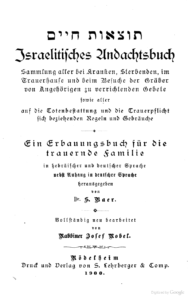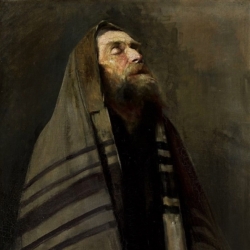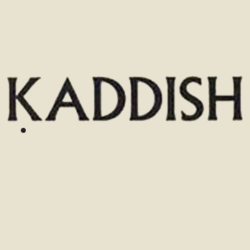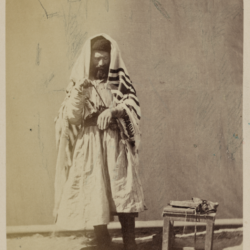| Source (Hebrew) | Translation (English) |
|---|---|
אָֽנָּא יְיָ מֶֽלֶךְ רַחֲמִים, אֵל אֱלֹהֵי הָרוּחוֹת לְכׇל־בָּשָׂר, אֲבִי יְתוֹמִים וְדַיַּן[1] Note that in Sefer Totza’ot HaḤayyim (after some passages of Torah study; p. 111), Rabbi Joseph Nobel spells this word with the final vowel being a kamatz (ָ), rather than a patah (ַ); however, because the word dayyan (דַּיָּן) here is in semikhut (סְמִיכוּת, “subordination”) form (the grammatical form where the noun preceding the next noun—without the use of a preposition or any word in-between—acts subordinately in relation to the following word), the grammatically correct vocalization is as written in the version of the text here, with a pataḥ. אַלְמָנוֹת אֱלֹהִים בִּמְעוֹן קׇדְשֶֽׁךָ! תָּבֹא לְפָנֶֽיךָ תְּפִלָּתִי וְתוֹרַת חַיִּים שֶׁלָּמַדְתִּי בַּעֲבוּר נִשְׁמַת |
Please YHVH, Sovereign of Compassion, El, Arbiter of the spirits of all flesh, Parent of Orphans and Judge of widows: Elohim, from the source of Your holiness! May my prayer and the Torah of life that I have learned come before you on account of the soul, |
להזכרת אב: אָבִי מוֹרִי (שם האב) הַנּוֹלַד מִן (שם אביו) שֶׁהָלָךְ לְעוֹלָמוֹ להזכרת אם: אִמִּי מוֹרָתִי (שם האם) הַנּוֹלֶֽדֶת מִן (שם אביה) שֶׁהָלְכָה לְעוֹלָמָהּ |
(parent’s name) born of (grandparent’s name), who has gone on to her/his world. |
כולם ממשיכים: וּבַאֲשֶׁר שֶׁלֹּא אוּכַל לְכַבֵּד זִכְרוֹן |
As I cannot honor the memory of |
להזכרת אב: (שם האב) נִשְׁמָתוֹ להזכרת אם: (שם האם) נִשְׁמָתָהּ |
(parent’s name)’s soul by saying a communal Ḳaddish, |
כולם ממשיכים: בַּאֲמִירַת קַדִּישׁ בְּצִבּוּר[2] In Nobel’s version, this word is spelled inconsistently with standard Hebrew grammatical laws: בְּצִיבּוֹר. The above text has incorporated this correction. אַתָּה יְיָ הָרוֹאֶה לַלֵּבָב תְּצַדֵּף[3] This word is likely a mistake for either תְּצַדֵּק (“justify”) or תְּצָרֵף (“link”). The translation here follows the latter interpretation. מַחֲשָׁבָה טוֹבָה לְמַעֲשֶׂה וְהָיְתָה נֶֽפֶשׁ |
You YHVH, who examines hearts, may You link good thinking to such action, and may the spirit of my |
להזכרת אב: אָבִי מוֹרִי (שם האב) נִשְׁמָתוֹ להזכרת אם: אִמִּי מוֹרָתִי (שם האם) נִשְׁמָתָהּ |
(relation), my teacher, (parent’s name)’s soul |
כולם ממשיכים: צְרוּרָה בִּצְרוֹר הַחַיִּים בְּגַן עֵֽדֶן עִם כׇּל־שְׁאָר צַדִּיקִים וְצַדִּיקוֹת[4] This term, referring to “righteous women,” is technically already subsumed under the previous word צַדִּיקים (tzaddikim), “righteous people.” Some may choose to omit the word וְצַדִּיקוֹת (vetzaddikot). חֲסִידִים[5] In Nobel’s printing, there is a dagesh in the dalet of hasidim, thusly spelled incorrectly: חֲסִידִּים. וַחֲסִידוֹת[6] This term, referring to “pious women,” is technically already subsumed under the previous word חֲסִידִים (hasidim), “righteous people.” Some may choose to omit the word וַחֲסִידוֹת (vahasidot). הַחוֹסִים בְּצֵל כְּנָפֶֽיךָ אָמֵן וְאָמֵן: |
be bound in the bond of life in the Garden of Eden, along with all other righteous and pious people, sheltered beneath the shade of Your wings. Amen, and amen. |
We are grateful to Jonah Rank for sharing his translation of “Gebet Statt Kaddisch” (Memorial Prayer for when there is no Minyan,תפילת הזכרת הורים כשאין מניין לאמירת קדיש) from Dr. Seligmann Baer and Rabbi Joseph Nobel’s Tozeoth Chajm: Vollständiges Gebet- und Erbauungsbuch zum Gebrauche bei Kranken, Sterbenden… (1900). Jonah first published his translation on his personal blog, here, thanking Rabbi Tzvi Graetz for calling the original source to his attention over Facebook. Rabbi Graetz titled this prayer “תפילת הזכרת הורים כשאין מניין לאמירת קדיש”. We are not certain who to attribute this Ḳaddish to. (Possibly, it was composed by Dr. Seligmann Baer.) Please comment below if you can add more certain attribution.
Notes
| 1 | Note that in Sefer Totza’ot HaḤayyim (after some passages of Torah study; p. 111), Rabbi Joseph Nobel spells this word with the final vowel being a kamatz (ָ), rather than a patah (ַ); however, because the word dayyan (דַּיָּן) here is in semikhut (סְמִיכוּת, “subordination”) form (the grammatical form where the noun preceding the next noun—without the use of a preposition or any word in-between—acts subordinately in relation to the following word), the grammatically correct vocalization is as written in the version of the text here, with a pataḥ. |
|---|---|
| 2 | In Nobel’s version, this word is spelled inconsistently with standard Hebrew grammatical laws: בְּצִיבּוֹר. The above text has incorporated this correction. |
| 3 | This word is likely a mistake for either תְּצַדֵּק (“justify”) or תְּצָרֵף (“link”). The translation here follows the latter interpretation. |
| 4 | This term, referring to “righteous women,” is technically already subsumed under the previous word צַדִּיקים (tzaddikim), “righteous people.” Some may choose to omit the word וְצַדִּיקוֹת (vetzaddikot). |
| 5 | In Nobel’s printing, there is a dagesh in the dalet of hasidim, thusly spelled incorrectly: חֲסִידִּים. |
| 6 | This term, referring to “pious women,” is technically already subsumed under the previous word חֲסִידִים (hasidim), “righteous people.” Some may choose to omit the word וַחֲסִידוֹת (vahasidot). |

“תשלומי קדיש יתום כשאין מניין | Replacement for the Orphans’ Ḳaddish when praying alone or when there is no minyan (1900)” is shared through the Open Siddur Project with a Creative Commons Attribution-ShareAlike 4.0 International copyleft license.







I like this tefilah, but I believe there is a small error in the directions (in the second line) for inserting the parent’s name. It’s at the point where one inserts the name of the deceased parent’s parent. I.e. it’s where one inserts the grandparent’s name, after the phrase “hanolad min”/”born of”. In the English translation above, it says to insert the “grandparent’s name”, and in the Hebrew above, it says to insert the name of the deceased parent’s father. In the original German, it says to insert the name of the “grossmutter”; that is insert the grandmother’s name. In fact, saying “hanolad min”/”born of” only makes sense if one uses the grandmother’s name. Best regards – Fred Rednor
i like i have readthe also new conservative siddur have added a prayer when there is not minyah for honour the departed